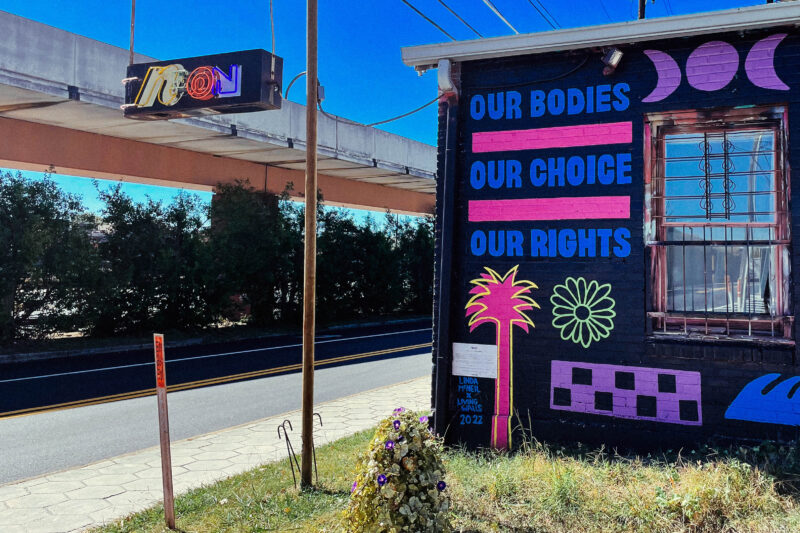Why Georgia’s Latest Abortion Ban Is So Devastating
All hope is not lost in the fight to block it.

This piece first appeared in our weekly newsletter, The Fallout. Sign up for it here.
Abortion access in the South just got more precarious, as the Georgia Supreme Court on Tuesday allowed the state’s ban on abortion after six weeks to stay in effect. The decision is as devastating as it is lawless, and it’s yet another example of conservative judges taking cues from the Supreme Court to go rogue when the mood strikes.
The ban at issue was passed in 2019, well before the Supreme Court overturned Roe v. Wade. Abortion advocates filed their legal challenges in federal court, where the ban was blocked. But after a federal appeals court decision in June 2022 that allowed the ban to take effect, advocates filed a new legal challenge in state court just days later.
The ban has been ping-ponging in the courts ever since.
But setting aside all that back and forth (and back and forth), here’s the only thing you really need to know about Georgia’s six-week ban: It was unconstitutional back in 2019 when Gov. Brian Kemp signed it into law, and it remains unconstitutional now. What the Georgia Supreme Court did this week was take a page out of the playbook for Dobbs v. Jackson Women’s Health Organization (aka the case that overturned Roe) and toss aside decades of Georgia law to allow the ban to take effect. Because the justices could.
All hope is not lost in the fight to block Georgia’s ban, though. While Tuesday’s decision allows the law to remain in effect, the case now returns to the trial court to determine whether it violates Georgians’ rights to privacy and equal protection under their state constitution. This trial court has already blocked the ban once, and I would expect it will do so a second time. More importantly, this second trip to the trial court will force a ruling on substantive issues of Georgia constitutional law, which, in theory at least, should be more difficult for the partisans on the Georgia Supreme Court to disregard.
Whether they do so or not remains to be seen, but these decisions will have implications far beyond Georgia. If the ban is allowed to remain in effect, that would leave Virginia as the last remaining Southern state without a post-Dobbs abortion ban in effect.
It’s almost impossible to comprehend the reproductive health-care desert that will exist should Virginia enact its own ban—which is a real possibility depending on the outcome of next month’s election. Republican Gov. Glenn Youngkin has promised a 15-week ban if conservatives take control of the state house.
It’s becoming increasingly clear that post-Dobbs, abortion rights advocates need to consider the judicial system as part of a harm-reduction policy to the chaos that has ensued since the Supreme Court overturned Roe. There is no longer a guarantee that the rule of law will hold and that the courts will recognize our rights. Instead of stockpiling rulings declaring any variety of abortion bans unconstitutional, litigating these bans these days mostly buys time for advocates to work toward other political solutions and for activists to do whatever they need to ensure patients get the care they need. That’s an important part of a post-Dobbs reality and strategy to deliver care.
The courts were never going to save us, and this latest ruling from Georgia drives that truth home.
